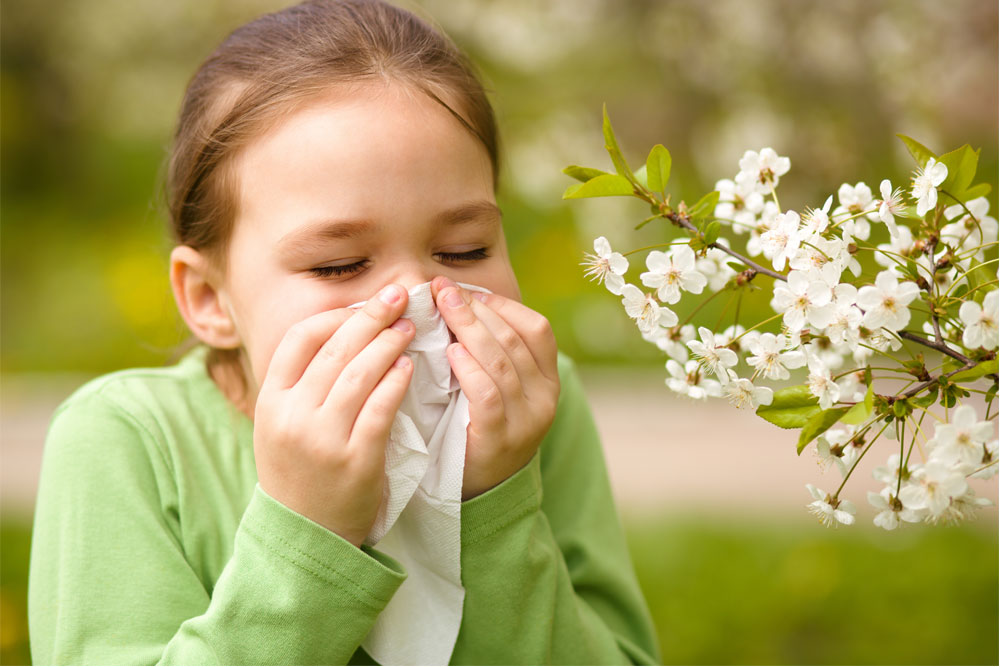Allergies come in all forms. From allergies to foods, medicines, and pets to seasonal pollen allergies and other particles that roam in the air. Allergies affects millions of people each year and allergic reactions can range anywhere from an annoying, persistent running of the nose to life threatening (and even deadly) attacks on the body.
There are several options for allergy treatment in New York City available. First, it may be helpful for you to seek out the assistance of an allergy doctor who can check and see what you may be allergic to.
Have you ever wondered what causes us to be allergic to things? Some things we seemingly are born allergic to and have the allergy all of our lives. However, for some, they may even experience an allergic reaction to something that they once were not. How and why does this happen?
The Immune System and the Production of Antibodies
The immune system is the system within our bodies that are responsible for keeping us healthy and free from illness and infections. The immune system produces antibodies that recognize when a foreign or potentially harmful substance has entered our body. Once they spot a potential threat, they trigger an immune response to attack and neutralize the threat to the body, disposing of any infected or ill cells.
This process of developing antibodies to recognize potential threats is how vaccinations work. The body is exposed to a weakened part of a disease which then allows the immune system to develop the antibodies that will recognize the disease if it were to infect the body in the future and immediately launch the appropriate immune system response.
How do Allergies Develop?
Allergies are caused when the antibodies produced by the immune system do not appropriately react and respond to non-threatening substances. Then, the immune system’s response to attack infected cells results in the immune system’s inappropriate attack of itself. The most common allergies include, but are not limited to:
- Foods – Most commonly nuts, dairy, fruits, shellfish, eggs, soy, and wheat.
- Medications – Penicillin and related antibiotics, anti-inflammatory drugs, chemotherapy drugs.
- Environment – Pollen, dust, pet dander, and mold.
- Other – Bee stings, latex.
Again, this list is just the most common allergens, but the body can effectively be allergic to anything that the body determines is a threat and creates an inappropriate immune system response to attack the body.
To summarize it simply, allergies are the body’s false reactions to substances that it believes to be harmful, but in reality, it is not.
What Kind of Allergic Reactions are There?
Allergic reactions come in many forms. Mind allergic reactions range from hives, itching, runny nose, nasal congestion, sneezing, and watery or itchy eyes. Some individuals experience more severe allergic reactions, which can include pain or tightness of the chest, nausea or vomiting, swelling of the face, eyes or tongue, wheezing, difficulty in breathing or swallowing, and even unconsciousness. When someone has a severe allergy to something, they may begin to experience anaphylaxis (also more commonly known as anaphylactic shock). These severe reactions are often life threatening and require immediate medical care or the result can be deadly.
Treatment of Allergies
A simple skin test is usually performed and the reaction of the surface of the skin to the exposure of common allergens is usually enough to diagnose what, if anything, you may be allergic to.
However, if you experience a mild allergic reaction and you are not sure what may be causing it, over-the-counter antihistamines such as Benadryl can help relieve you of your symptoms. You may still wish to seek out the help of a doctor to determine what’s causing the allergic reaction. Your doctor may administer an allergy shot or recommend an over-the-counter allergy medication to take to help control your allergic reactions.
As noted above, if you or someone you know experiences a serious allergic reaction, you should seek medical attention immediately. Those with known severe allergic reactions often carry with them an EpiPen (an auto-injector of a “rescue drug” known as epinephrine). Once administered, the airways begin to open up and the blood pressure is increased.
Allergy Treatment in New York City
While allergies can be serious, they don’t have to be, and they don’t have to control your life. The first step is seeking out proper allergy treatment in New York City, as well as properly equipping and preparing yourself should you (or someone you love) have a severe allergy that requires additional preventative care and precaution. Contact Dr. Shukla of the Asthma, Allergy, and Sleep Center of New York today at (917) 935-4864 or by e-mail at info@drmayankshukla.com to schedule your appointment today!

